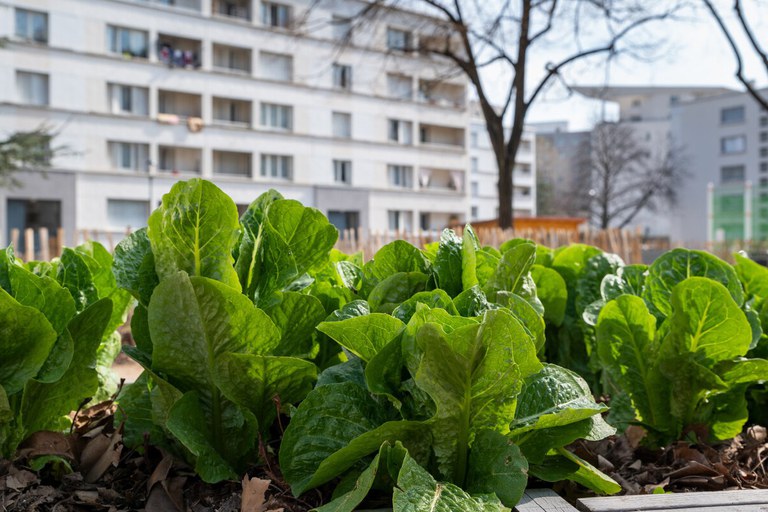Strengthening local and regional food chains to enhance food security.
Problem
Can cities help meet demand for food despite limited agricultural space?
- In 2018, 82 percent of the U.S. population lived in urban areas, with an anticipated increase to 89 percent by 2050. With growing populations and affluence, urban food demand will increase, presenting considerable challenges to achieving economic, environmental, and social sustainability.
- The COVID-19 pandemic exposed weaknesses in food supply chains and sharpened the focus on localizing food systems.
Findings
Researchers analyzed the nutritional needs of the population of Chicago based on 28 nutrients and calculated how much food could be produced in the city by maximizing urban agriculture practices such as rooftop gardens and community plots. They also calculated how much crop land would be needed adjacent to the city to grow the rest.
- The findings suggest that urban agriculture can help support food supply chains for many major American cities; however, it would be unrealistic for such practices to meet all nutritional needs given current urban agriculture practices, but they add diversity to diets and provide key nutrients.
Impact
The study was the first to evaluate land required to meet food demand while accounting for a range of nutritional needs instead of only calories or quantities. Their findings illustrate how urban agriculture can realistically result in positive nutritional outcomes by using land not currently used for food production.
Research Credit
Team
- Christine Costello, Zeynab Oveysi, Bayram Dundar, Ronald McGarvey
Participating Department
Partners
- University of Missouri
- Bartin University, Turkey
Other Funding
- University of Missouri
Federal and State Appropriations
- USDA NIFA Hatch Multistate Project PEN04671, Accession # 1017582
Emerging Discoveries
Published Research
Assessment of the effect of urban agriculture on achieving a localized food system centered on Chicago, IL using robust optimization
-
Costello, C., Oveysi, Z., Dundar, B., & McGarvey, R. (2021). Assessment of the effect of urban agriculture on achieving a localized food system centered on Chicago, IL using robust optimization. Environmental Science and Technology, 55(4), 2684-2694. https://doi.org/10.1021/acs.est.0c04118
Office for Research and Graduate Education
Address
217 Agricultural Administration BuildingUniversity Park, PA 16802-2600
- Email agresearch@psu.edu
- Office 814-865-3136
Office for Research and Graduate Education
Address
217 Agricultural Administration BuildingUniversity Park, PA 16802-2600
- Email agresearch@psu.edu
- Office 814-865-3136



